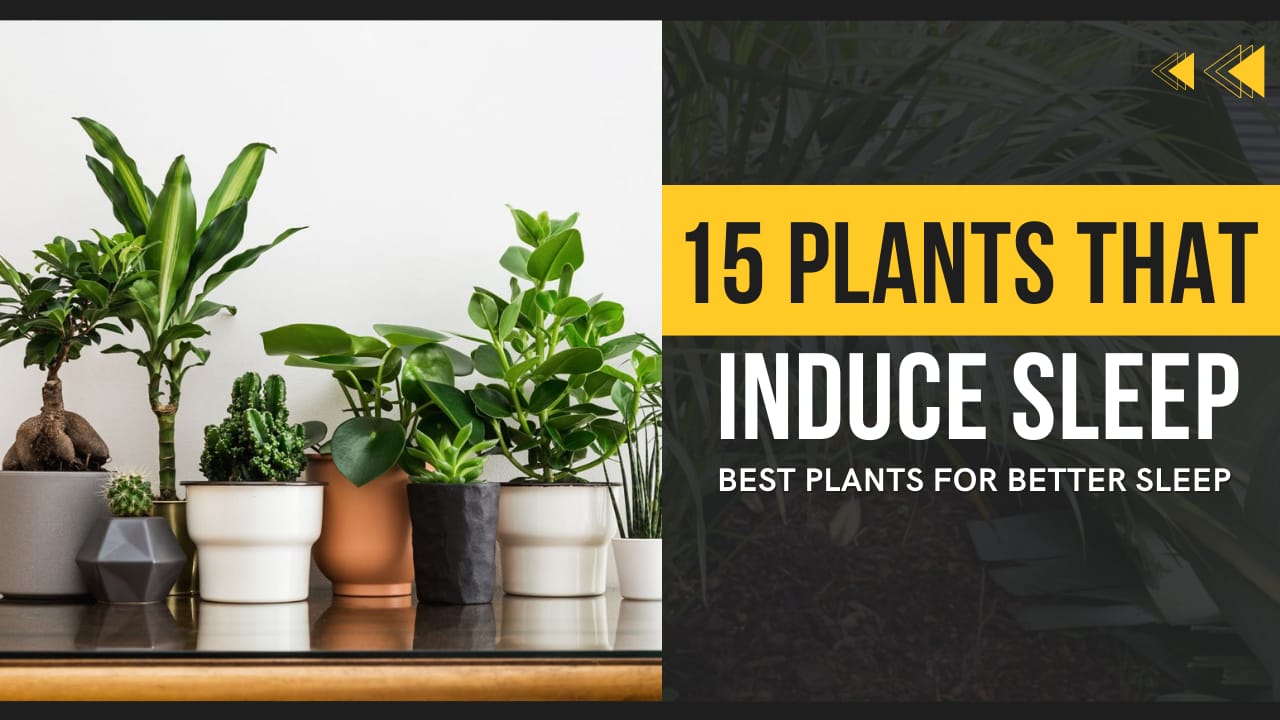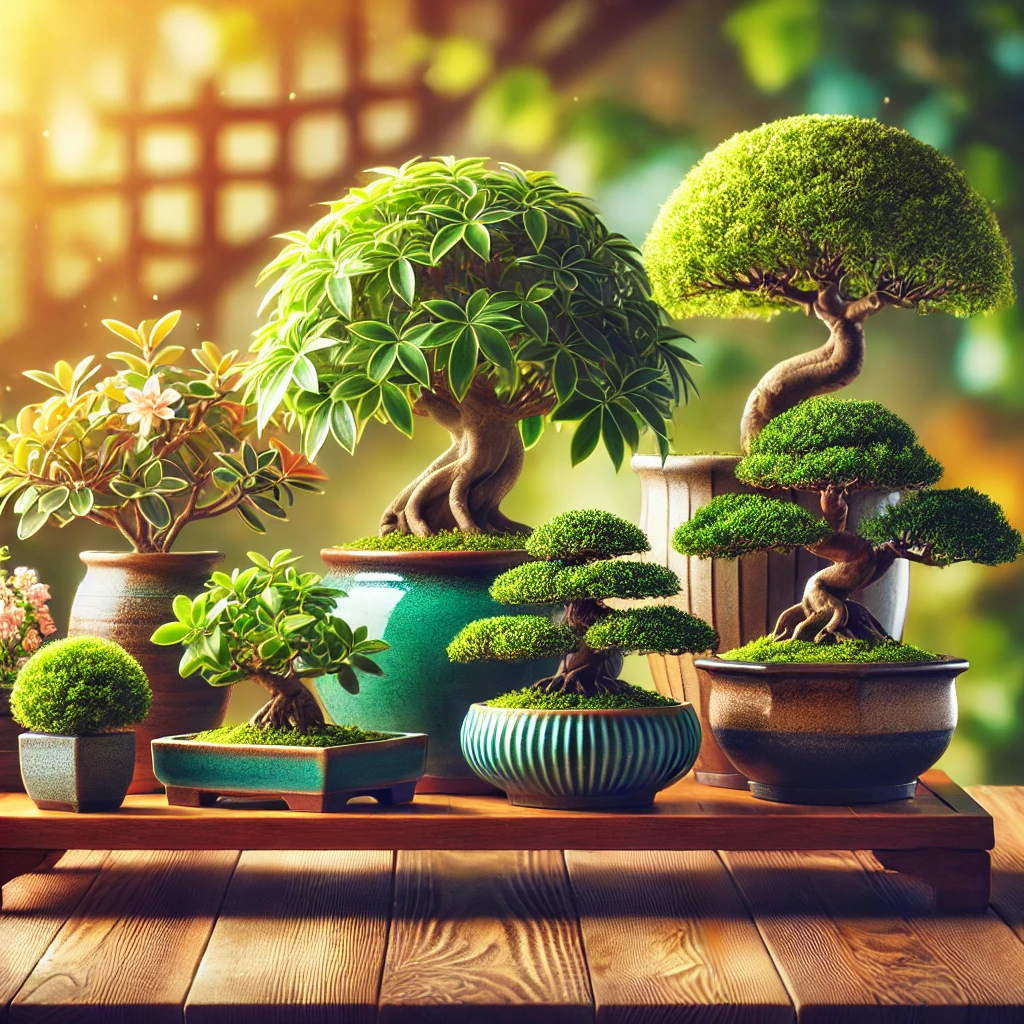Can’t sleep well at night? Don’t worry, you are not alone. Among Indians, 1 in 2 gets less than 6 hours of uninterrupted sleep a night, and 1 in 4 sleeps less than 4.
Getting a good night’s sleep can be difficult for a number of reasons. Some of them include
- poor air quality,
- high humidity,
- dust and mold in the room,
- anxiety, etc.
There are many solutions to the above problems, such as caffeine, sleeping pills, etc. Yet, if you have found your way here, you have made the right choice. As plants are the best natural solution.
In this article, I am going to share the list of the 15 best plants for sleep that will help you get to sleep. Additionally, if you have difficulty sleeping due to anxiety or insomnia, then this article is sure to help.
Also, do you know Gardenia can put you to sleep instantly? As well there are other edible plants that induce sleep indoors, like Chamomile.
Apart from these plants, there are many more plants that induce sleep, so let’s explore them.
Best plants that induce sleep
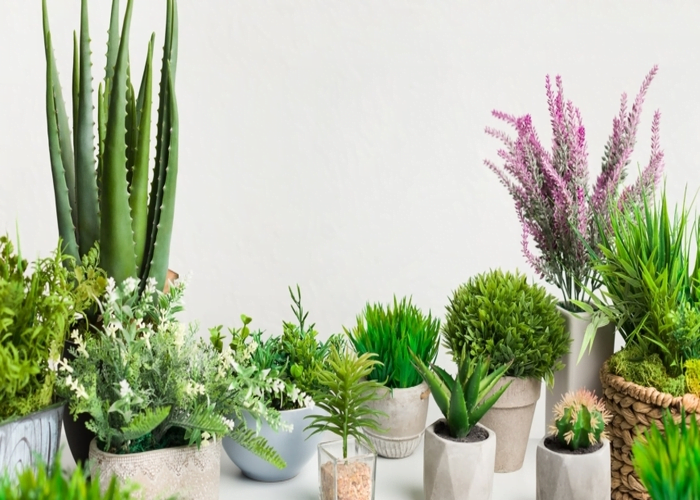
Hundreds of toxins are unknowingly absorbed into your body as you breathe. Are you aware of that?
Indoor toxins have many causes. Such as toxins present in cleaning products, pet fur, or mold. While some of them are easily recognized because of their smell, many others go unnoticed.
This problem can be solved by bringing plants to the bedroom since they produce oxygen at night. Adding oxygen to a room purifies the air and creates a calm and relaxing atmosphere. It is this relaxing atmosphere that allows you to sleep well at night.
It is also known that some plants have mesmerizing scents that can help you fall asleep. We are going explore such best plants that make you sleepy.
1. Snake Plant
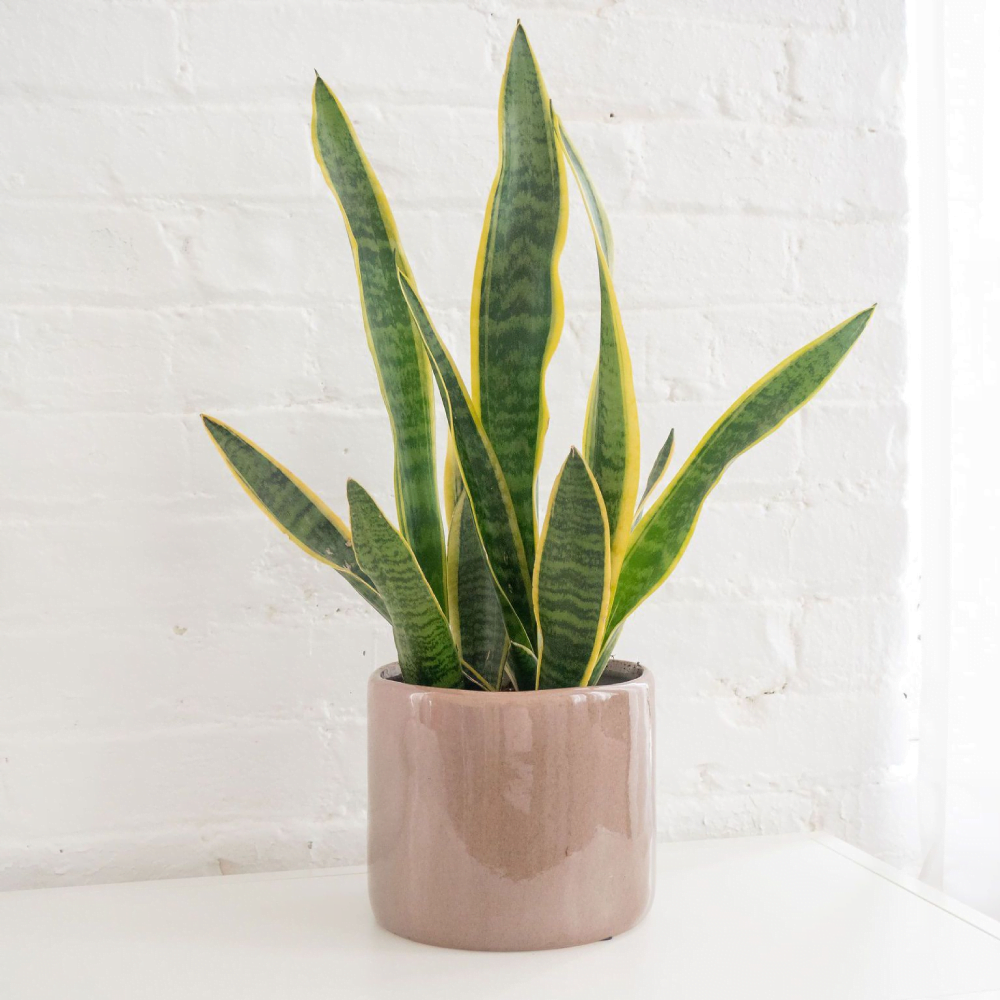
Make sure molds and dust mites don’t interrupt your sleep anymore. You can keep your bedroom mold-free by bringing snake plants.
This plant increases oxygen in your bedroom. Also, your hair spray contains toxins like formaldehyde, which snake plants absorb.
2. Aloe vera
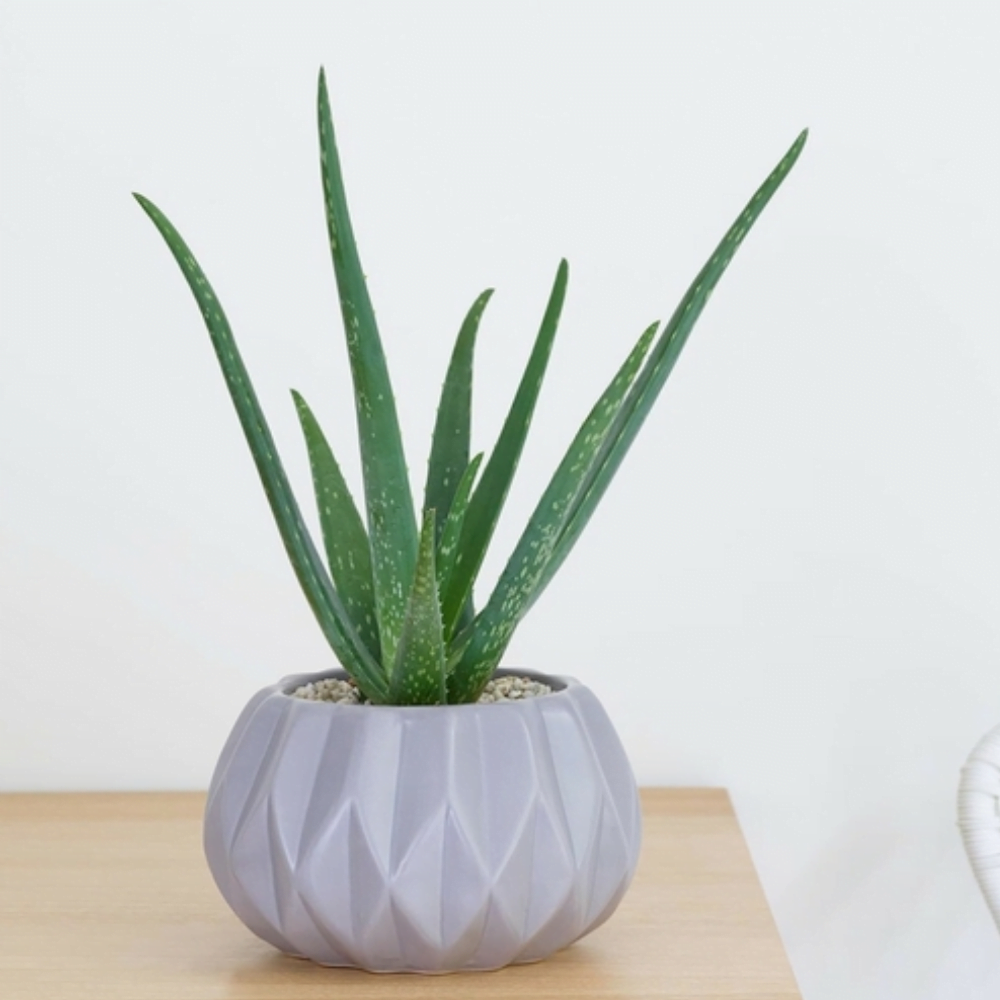
Aside from soothing cuts, burns, bites, and dry skin, aloe vera plants induce sleep.
Aloe vera promotes healthy sleeping by releasing oxygen throughout the night.
3. Areca Palm
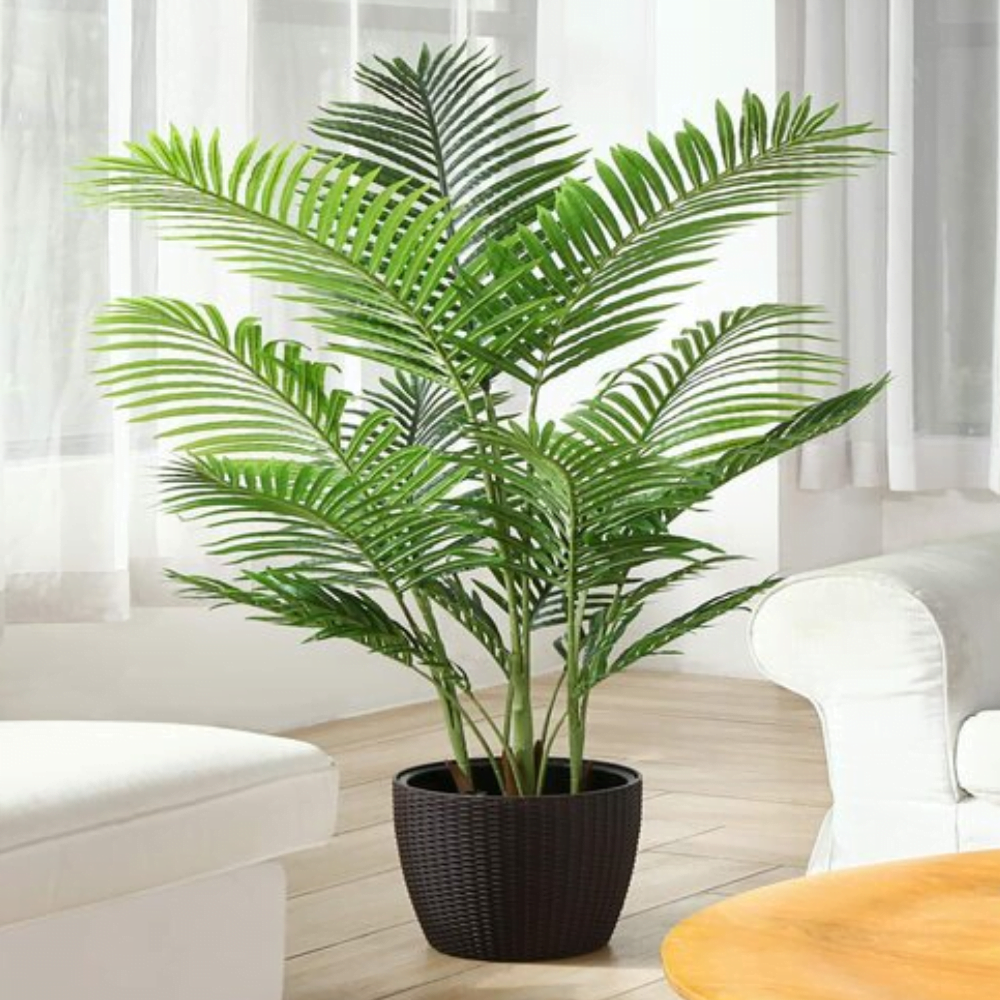
While you sleep, the areca palm keeps the air in your bedroom fresh. Also, it’s known for being one of the best air purifiers.
This plant is also great for removing toxins from the air, as well as being a great plant for larger spaces.
4. Spider plant
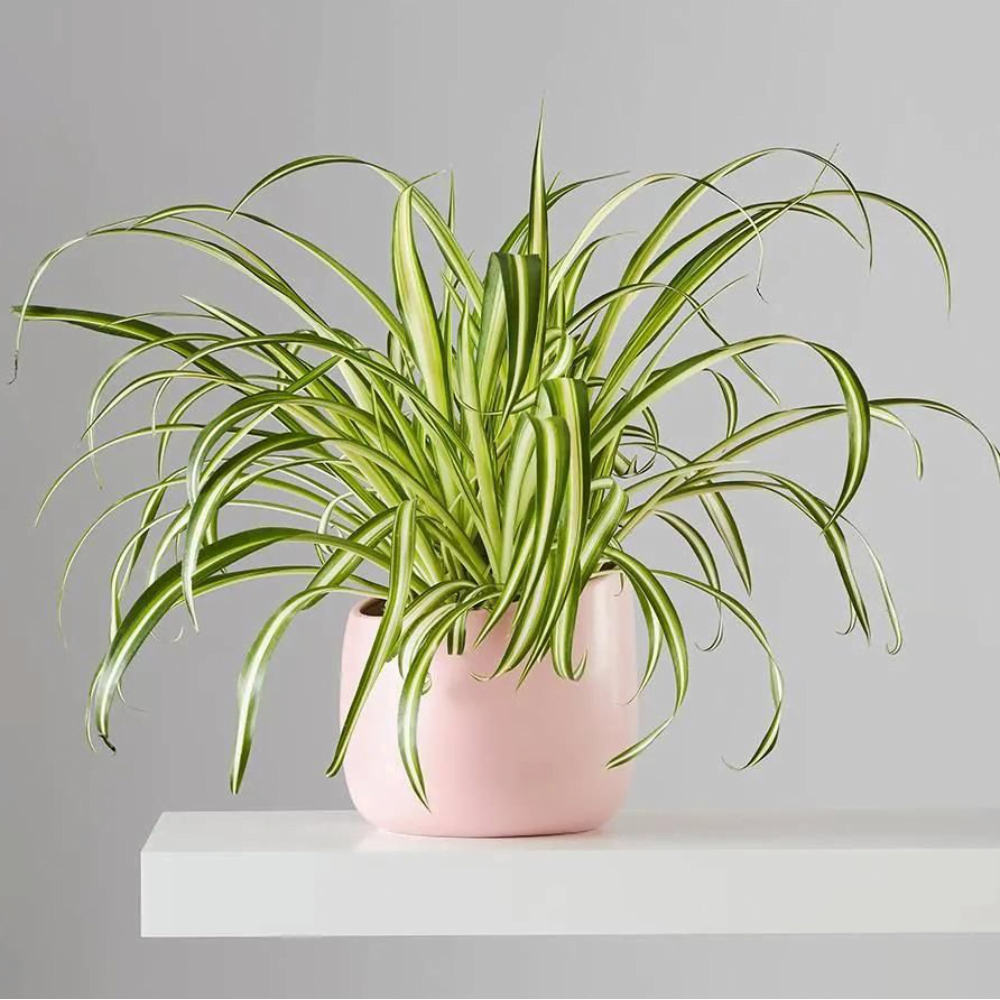
Spider plants are excellent for absorbing airborne toxins. Using indoor spider plants can improve sleep quality.
As they absorb harmful toxins such as odours, fumes, and formaldehyde. Moreover, spider plants provide oxygen to your bedroom at night.
5. Chinese evergreen
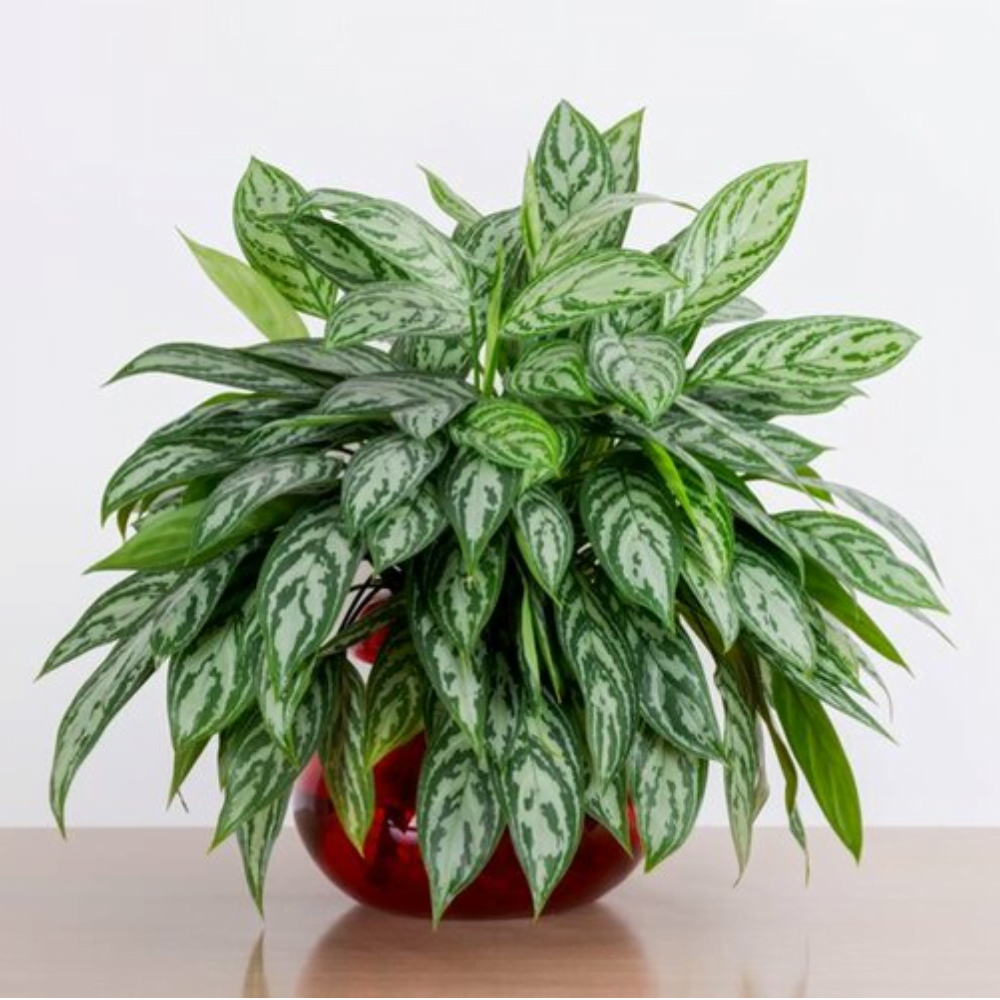
With minimal attention, a stunning Chinese evergreen plant will induce sleep. In addition, they effectively remove toxins.
So, let the vibrant leaves of Chinese evergreen greet you each morning.
6. Lavender
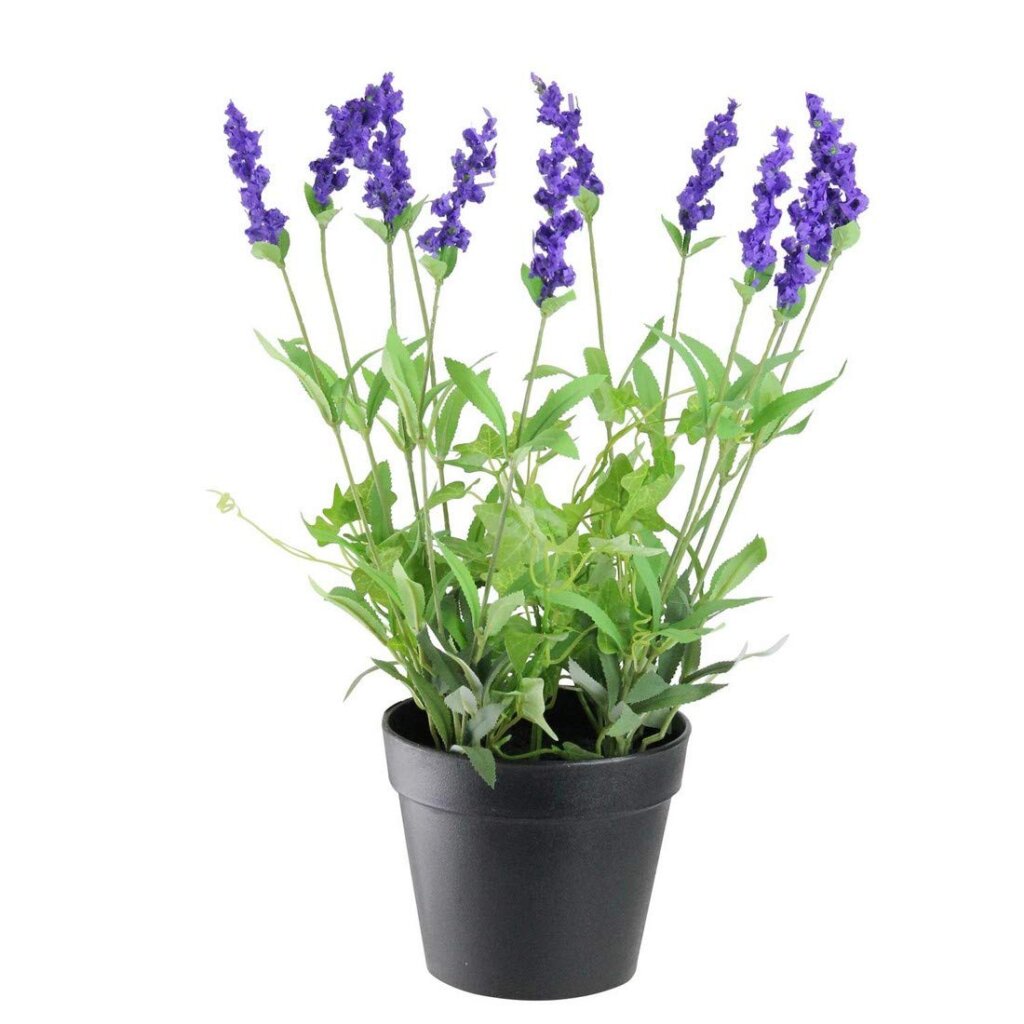
Is anxiety keeping you up at night? You need lavender!
For anxiety, they are the best remedy. Anxiety increases our heart rate and blood pressure. A lavender plant reduces these factors, which cause sleepiness.
Also, there’s nothing like the lavender scent to relax you.
7. English ivy
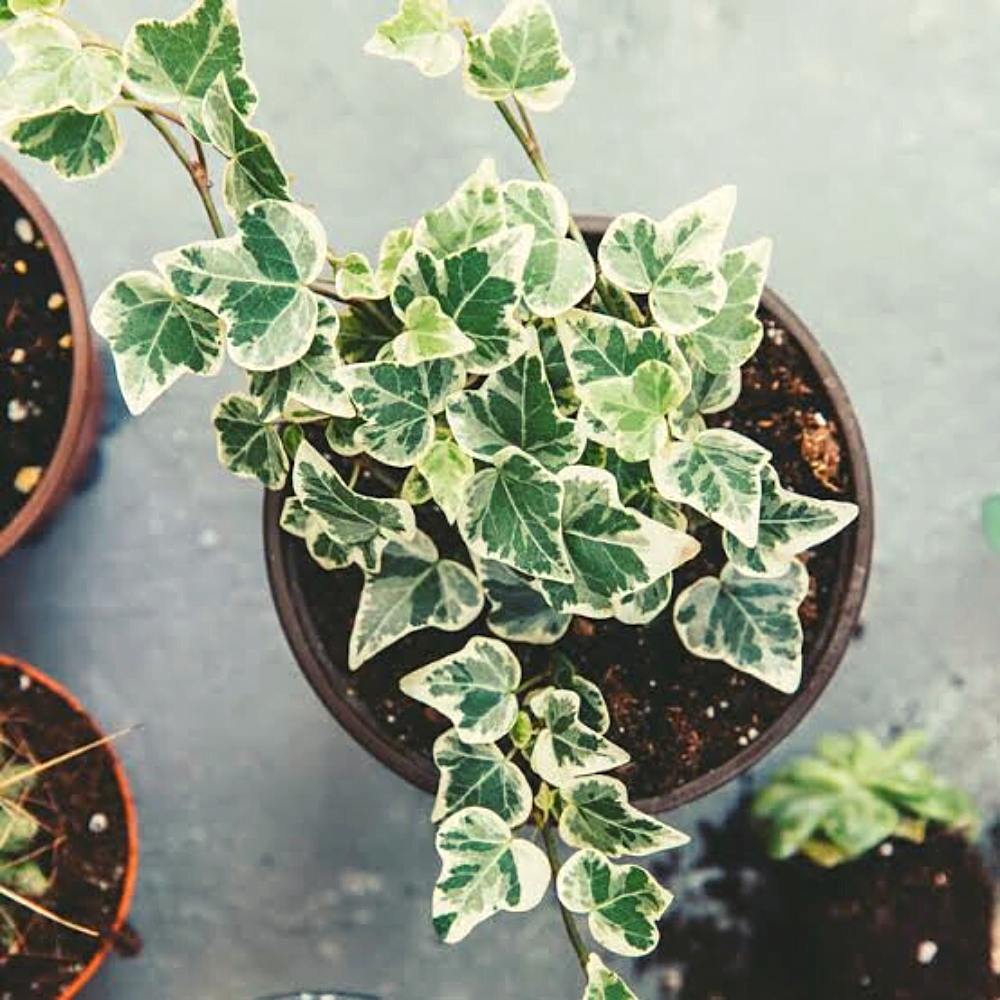
There’s also English ivy, which can help you breathe better in the bedroom. It can also help with damp conditions in your bedroom.
By collecting airborne mold, it prevents you from getting sick.
8. Jade plant
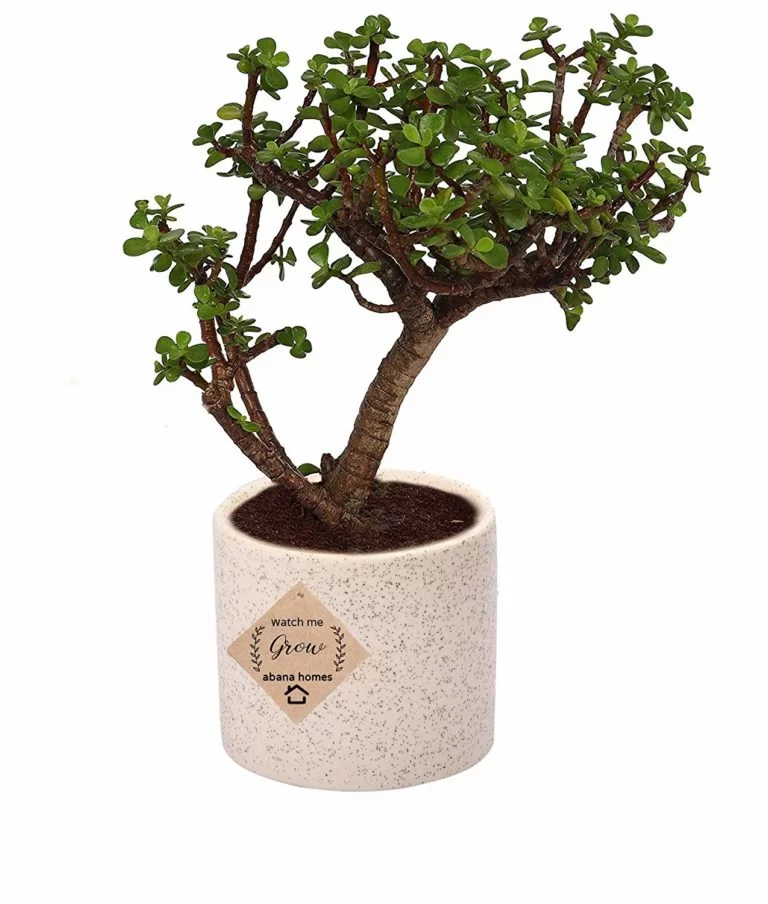
You can create a more relaxing and peaceful bedroom with a Feng Shui plant.
Your bedroom benefits from Jade plants as they reduce carbon dioxide levels, increase humidity, and improve sleep quality.
9. Rubber plant
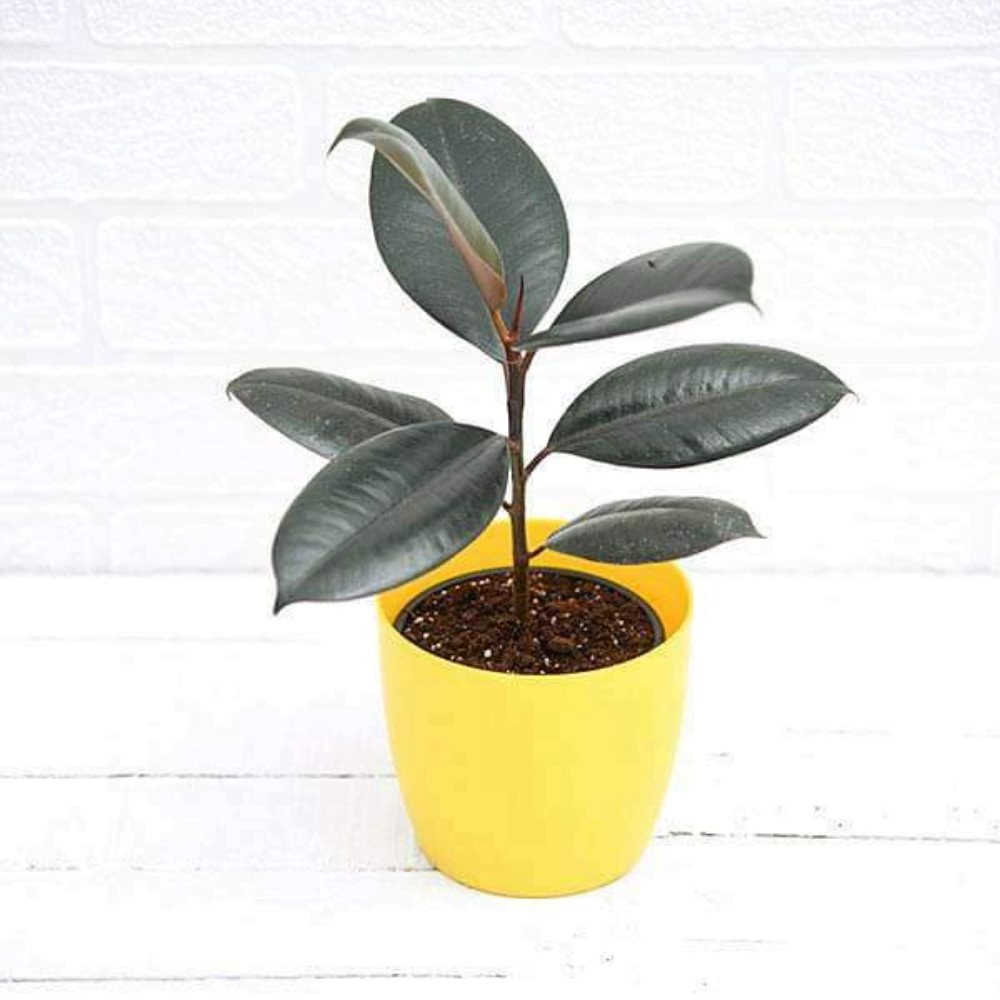
In search of a larger plant? Go for rubber plants!
There are large, striking leaves on the rubber plant, and it is hardy.
You don’t have to worry about caring for the rubber plant because it’s very hard to kill.
10. Chamomile
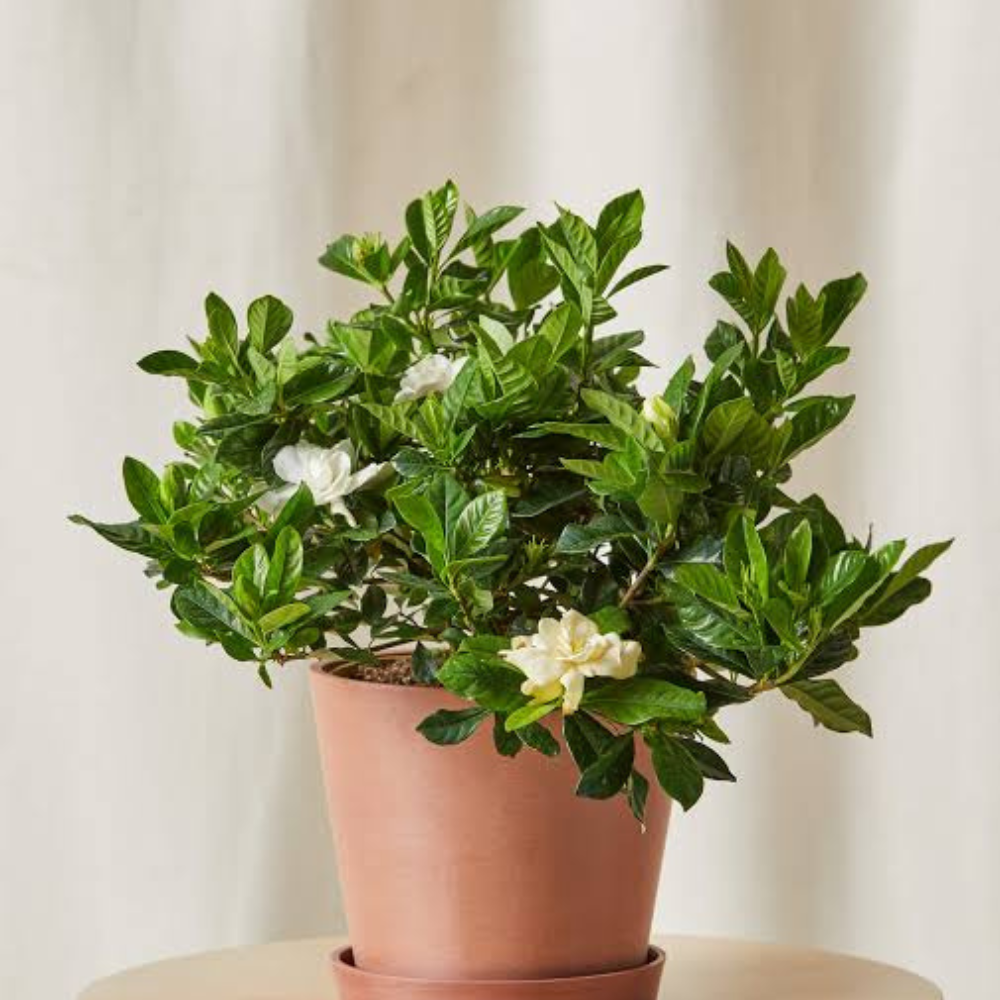
Try Chamomile in your bedroom if you suffer from insomnia. Chamomile plants are excellent for calming you down and putting you to sleep instantly.
There are also many ways to use it to relax and unwind, such as tea, essential oils, and more.
11. Peace lily
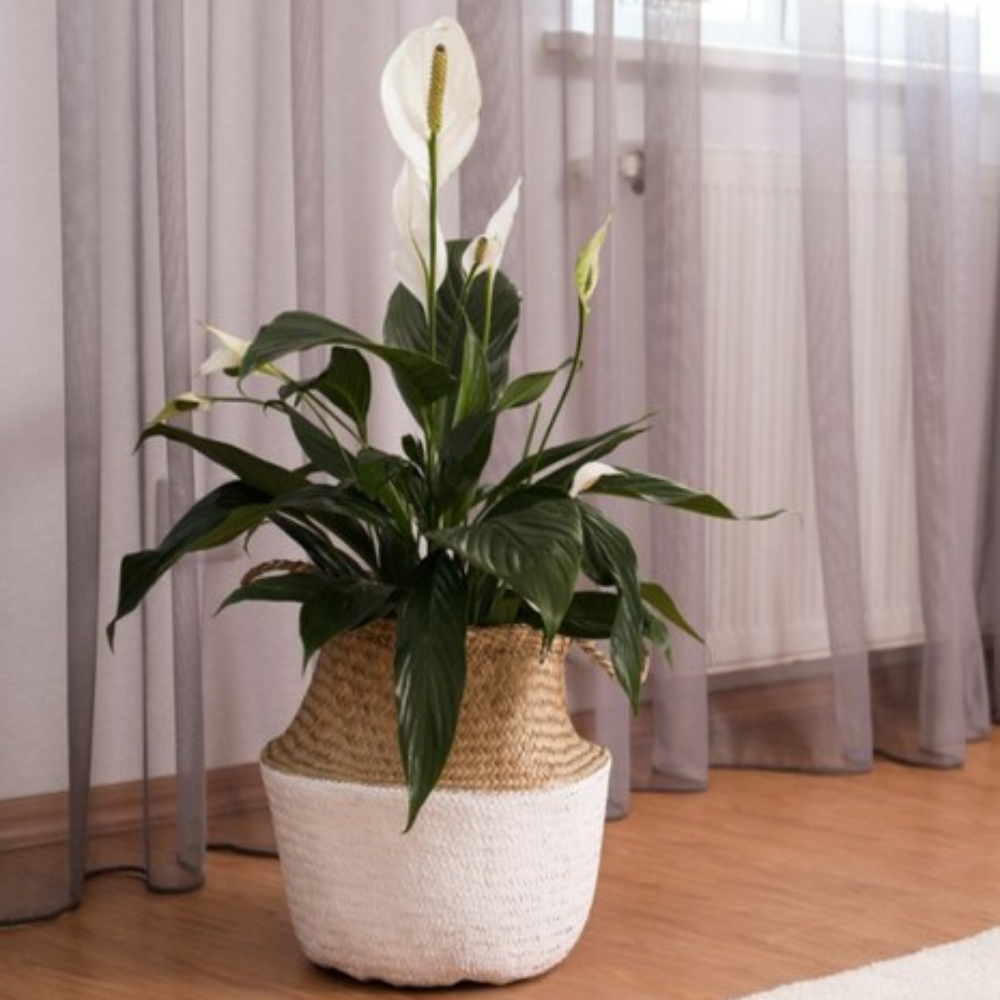
The presence of damp air can interfere with sleep, but so can the presence of dry air. Try using a peace lily in your bedroom if it is too dry.
These lilies can increase your bedroom’s humidity by up to 5%, reducing dry skin, static electricity, and cold susceptibility.
12. Golden Pothos
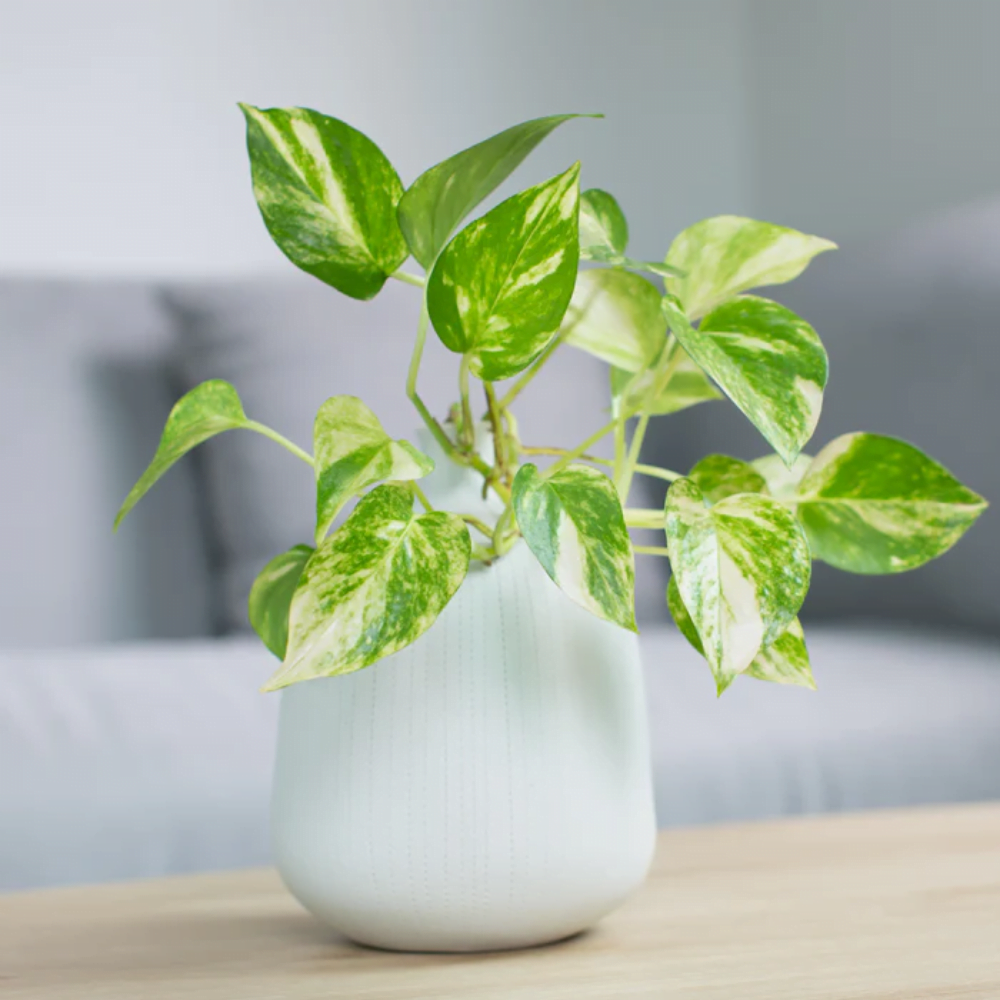
Bring these low-maintenance plants that induce sleep. Carbon monoxide and formaldehyde are particularly well removed by golden pothos. In addition, they save space on your shelves or floor.
You can display these beautiful trailing plants in a hanging basket or on shelves.
13. Gardenia
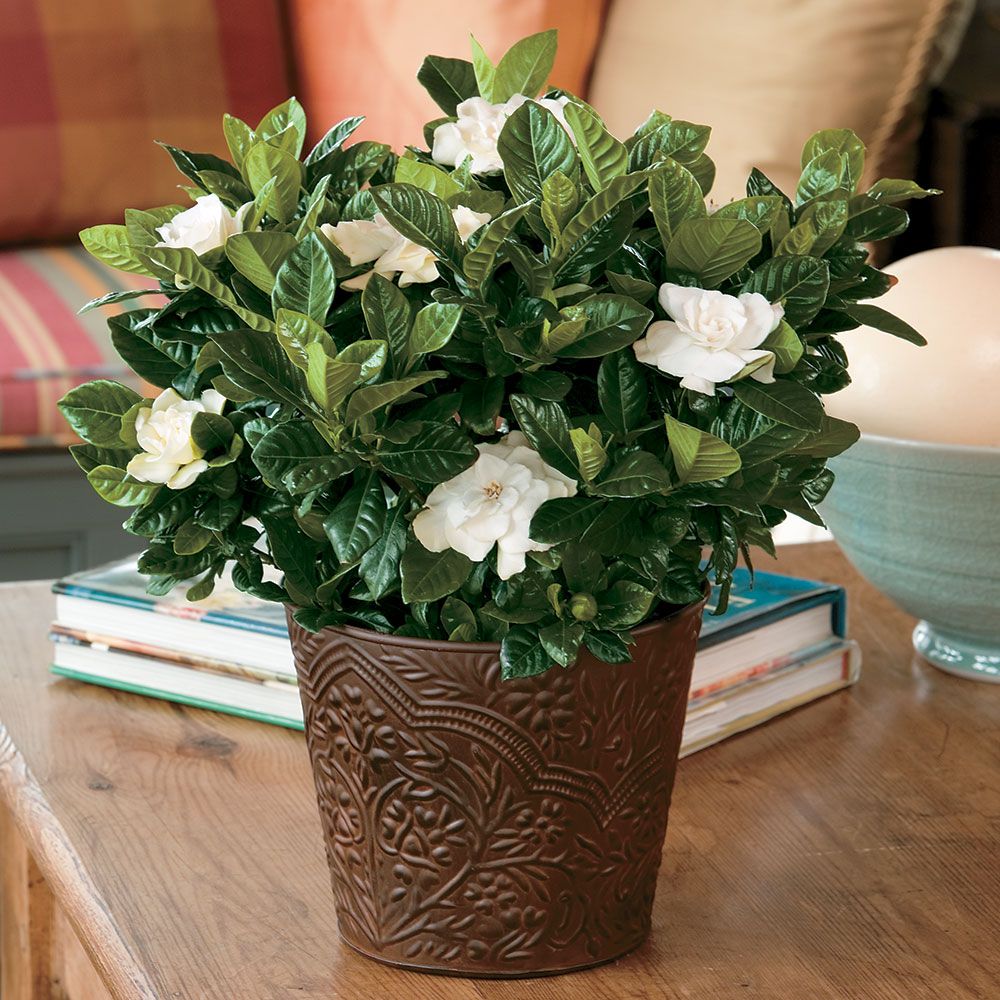
If you wake up in the middle of the night, buy a gardenia. It is known that inhaling gardenia flowers makes you fall asleep instantly.
The scent of gardenias reduces stress and induces sleep.
Additionally, they are known to be effective alternatives to sleeping pills like valium.
14. Jasmine
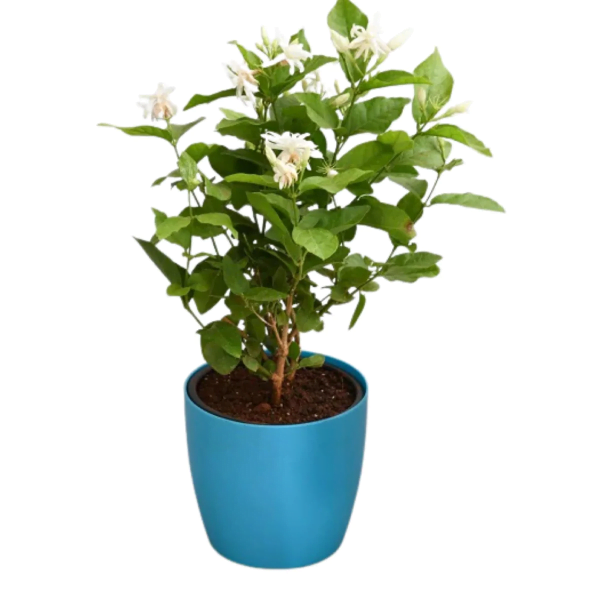
Several perfumes and candles contain jasmine to enhance their aroma. In your bedroom, a pleasant aroma of jasmine will fill the air, making it easier to sleep.
15. Gerbera Daisy
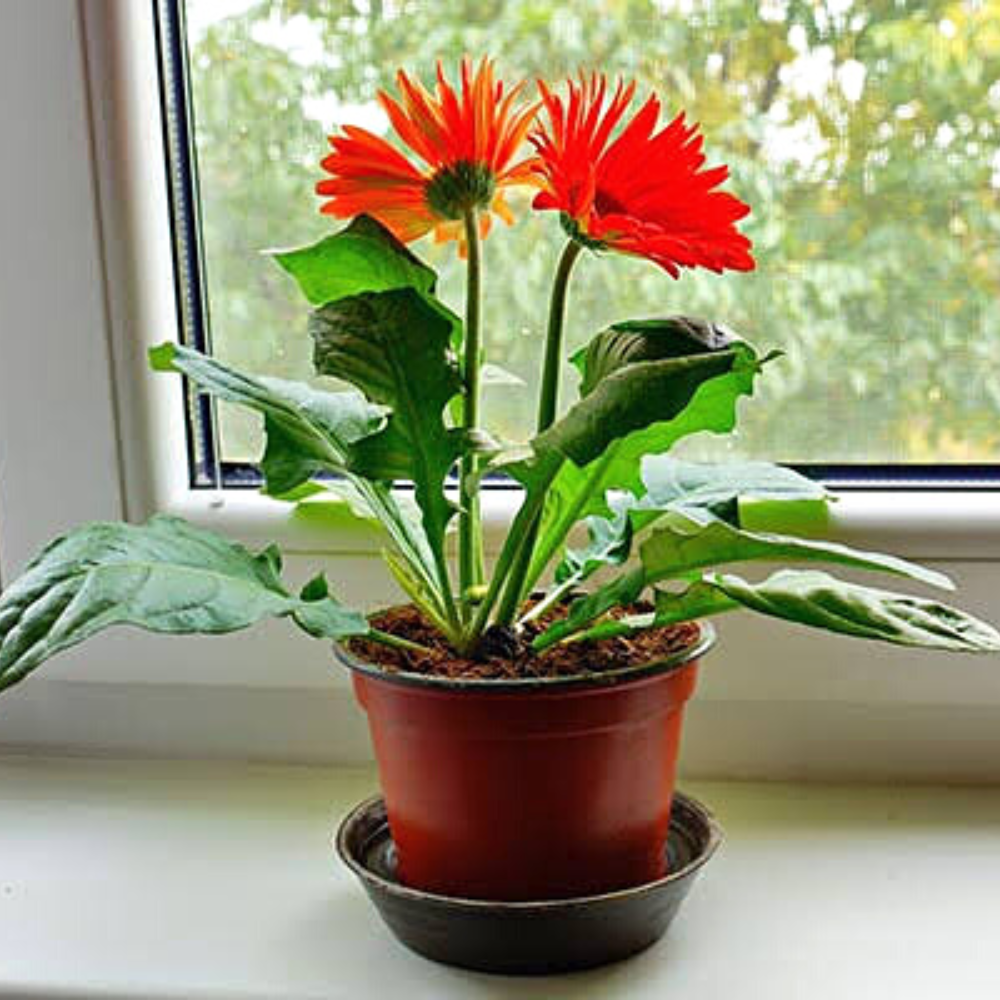
It’s hard to go wrong with these dainty blooms if you want to create a splash of colour in your room. Also, in your bedroom, the Gerbera Daisy increases oxygen levels at night, making them the best plants for sleep.
To determine which plants are good for your sleeping issues, let’s take a deeper look at the best plants for sleep. When you know how to take care of these plants that induce sleep, you will be able to sleep deeper and uninterrupted for a long time.
Best Plants that Induce Sleep
1. Snake Plant
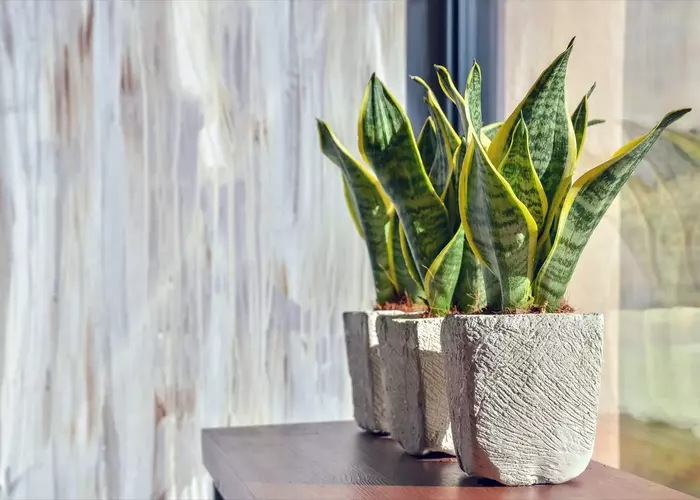
What’s the #1 reason you don’t sleep well? It’s your room’s air quality.
Often, the bedroom is filled with moisture from our breathing. As a result, it increases the humidity levels in the room. As well, if you keep the door closed, less air will circulate inside the room.
A highly humid bedroom provides perfect breeding grounds for molds and dust mites. When these two unwanted guests are in your bedroom, it is difficult to breathe. As a result, you have trouble sleeping.
Luckily, snake plants are your saviour. This plant is great for pumping oxygen into your room. Also, it absorbs xylene, trichloroethylene, toluene, benzene, and formaldehyde, reducing air pollution.
Since hairspray often contains formaldehyde, keeping this plant in the bedroom is a great idea.
Water every two weeks, or when the soil feels dry. Anything’s fine for snake plants, but more sunlight is better.
2. Aloe vera
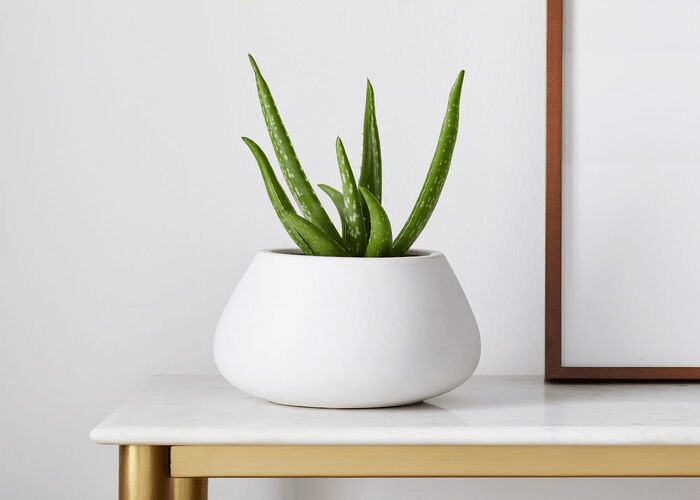
It is no secret that aloe vera soothes cuts, burns, bites, and dry skin. However, did you know aloe vera plants make you sleepy?
You can sleep peacefully at night thanks to aloe vera’s oxygen production. It is more beneficial if you place this sleep-inducing plant on your window as aloe vera loves lots of sunlight.
Moreover, as long as it is not over or under-watered, aloe vera can survive in indirect sunlight and artificial light.
3. Areca Palm

A natural humidifier, the areca palm keeps the air in your bedroom fresh while you sleep. It is known to be one of the best air purifiers. Like the snake plant, it removes toxins from the air.
This plant needs a lot of indirect light. A light that’s too harsh makes the leaves yellow. When watering your palm in winter, allow the soil to dry out between waterings.
4. Spider plant
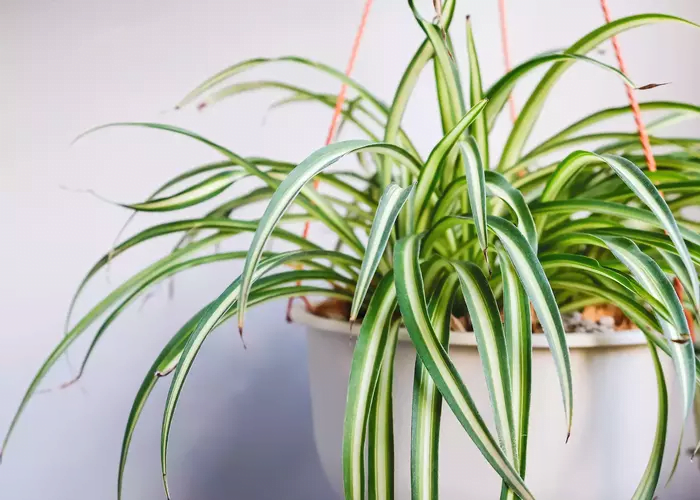
While the name of this plant is creepy, it is an excellent plant for absorbing airborne toxins. As spider indoor plants absorb harmful toxins, including odours, fumes, and VOC formaldehyde, they aid in sleep.
Moreover, spider plant provides oxygen to your bedroom at night, improving the air quality.
Also, spider plants make excellent gifts. If your plant sprouts babies, you can take a cutting and root it in water in a small pot. Once the roots start to grow, you can move the plant to the soil. As they have long, hanging leaves, hanging pots are great for these.
Make sure the soil is slightly moist. In spring and summer, water once a week; in winter, water less often. Also, ensure plants get bright indirect sunlight. It’s not good for spider plants to be in direct sunlight. Direct sun can burn their leaves.
5. Chinese evergreen
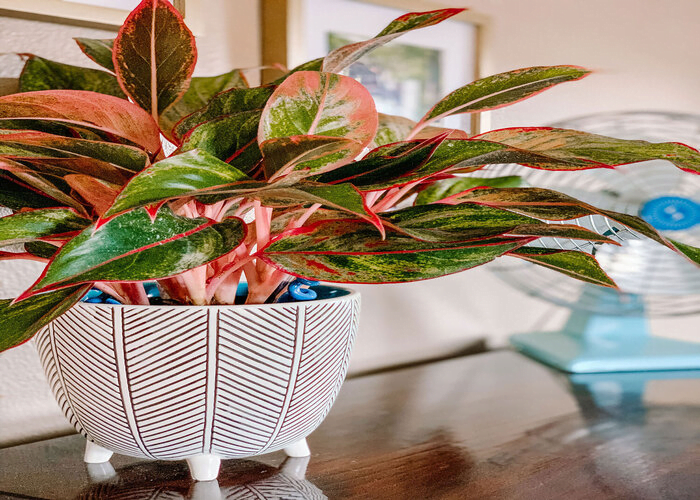
Bring a stunning-looking Chinese evergreen plant if you are looking for plants that induce sleep with minimal attention. They’re great at removing toxins.
This Chinese Evergreen can thrive in minimal light, making it perfect for bedrooms. It has dark green, pointed leaves with white, cream, or red patterns. You will enjoy waking up to these vibrant colour leaves every morning.
Between waterings, let the soil dry out a little. Even when you miss a few waterings, Chinese evergreen will usually bounce back after that. While they can tolerate dry air inside, they prefer high humidity.
6. Lavender
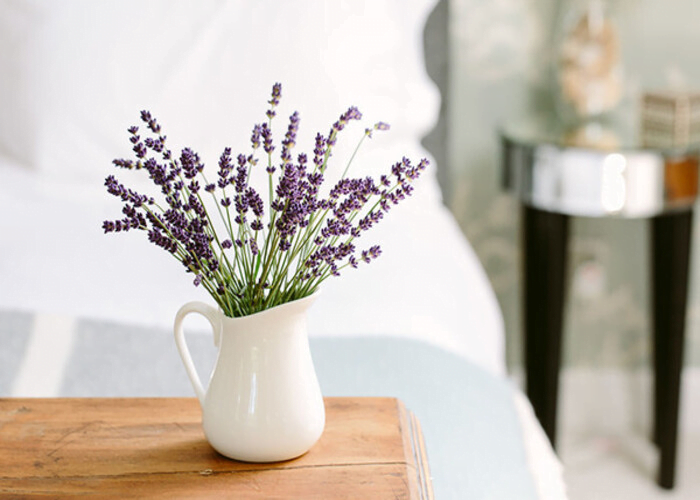
Do you suffer from anxiety before bedtime? I know it can be difficult to sleep if you are anxious. However, when it comes to easing anxiety, lavender is the solution.
It is well known that the lavender scent makes you feel relaxed. In a relaxed state of mind, you enjoy uninterrupted sleep.
As we experience anxiety, our heart rate, and blood pressure increase. Lavender plants reduce these factors, which induce sleep.
Additionally, your dreamy night will be accompanied by a colourful morning thanks to lavender blooms. Your windowsill is the perfect place for lavender plants, as they enjoy warmth and sunlight.
When it comes to indoor growing, lavender needs a lot of light. After the soil dries out, water deeply but infrequently.
7. English ivy
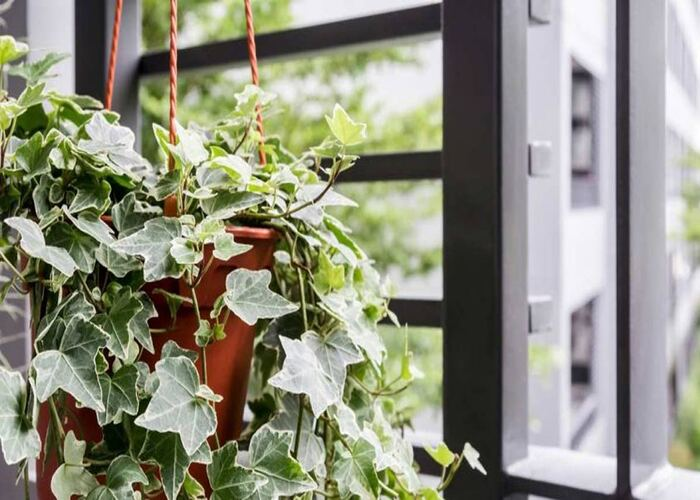
Another plant that can help with poor respiration in your bedroom is English ivy. It can also help combat damp conditions in your bedroom. Additionally, it’s great for collecting airborne mold – preventing you from getting sick.
Moreover, if allergies keep you waking up at night, English ivy is the plant for you. Along with mold and feces, it relieves asthma symptoms.
Your bedroom will definitely benefit from this air-purifying powerhouse. However, keep it out of reach of children and animals since it is toxic if consumed!
Low light is fine for English ivy, but bright indirect light is preferred. With more light, the leaves of this ivy will show you more vivid colors. However, direct light can harm it. In the spring and summer, water once a week, and in the winter, less often.
8. Jade plant
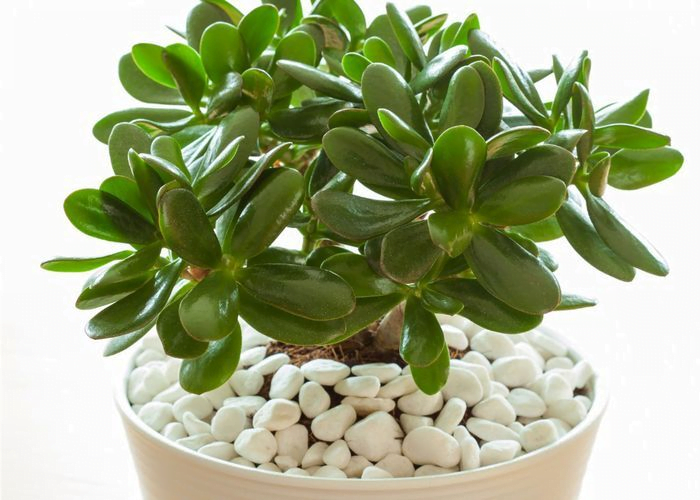
Using Feng Shui in your bedroom can improve its Chi (energy) and create a more relaxing and peaceful environment.
In general, Jade plants make a great addition to your bedroom as they improve the quality of your sleep by reducing carbon dioxide levels and increasing humidity
In Feng Shui, plants are important because they bring life and attract good fortune. A jade plant is not just a good sleep plant. It represents wealth, prosperity, and friendship, making it the perfect bedroom plant.
Jade needs lots of light—at least 4 hours a day. Also, let the soil dry out during winter and keep the soil moist during the growing season (spring and summer). Make sure you don’t splash the leaves.
9. Rubber plant
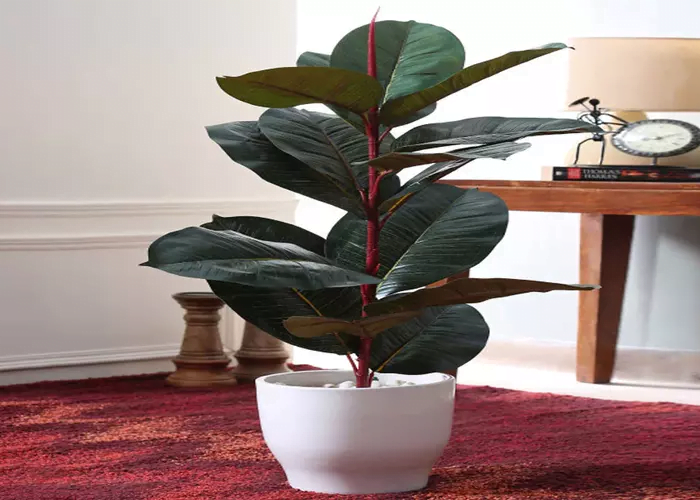
When it comes to large plants, the rubber plant is a good choice. The leaves are large and striking, and the plant is hardy. In case you are concerned about your ability to care for a plant, rubber plants are hard to kill.
Despite the fact that rubber plants purify the air, which makes them a good choice for improving sleep, the sap from the plants is toxic to humans, dogs, and cats. So, if you have pets or children, keep your rubber plant away from them.
You can water your Rubber Tree every 1-2 weeks, allowing the soil to dry out in between. Bright light is best, but not direct sunlight. Often, rubber plants grow best in sunny spots shielded by sheer curtains.
10. Chamomile
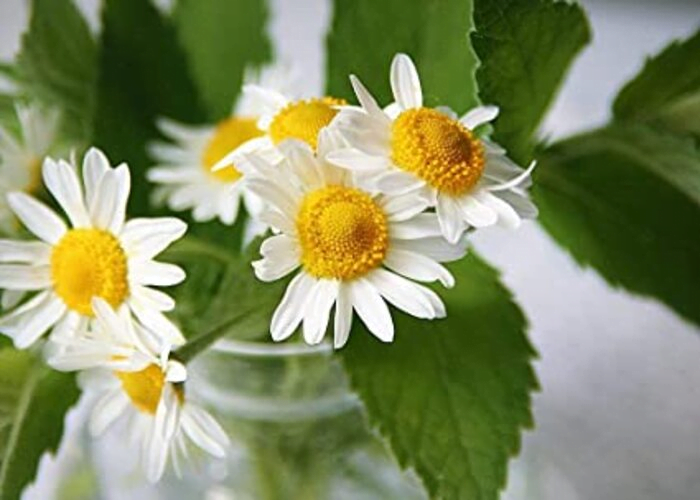
If you suffer from insomnia, try Chamomile! Chamomile plants are great for calming you down and making you fall asleep instantly. It is also used in many different ways to help you relax and unwind, including teas, essential oils, and more.
It is also said to be a mild tranquillizer and a sleep inducer. So, it would be best to keep it close to your bed. And if you want a fresh and relaxing aroma, accompany your chamomile with lavender.
Chamomile grows best in a bright window with a south- or west-facing direction. Make sure the soil is moist but not soggy.
11. Peace lily

It’s not just damp air that can be problematic for sleep, but also dry air. Try using a peace lily if your bedroom is too dry.
Up to 5% of your bedroom’s humidity can be increased by these lilies, which reduces dry skin, static electricity, and cold susceptibility.
Also, peace lilies are not fussy about water or light, so you can keep one right beside your bed.
12. Golden Pothos
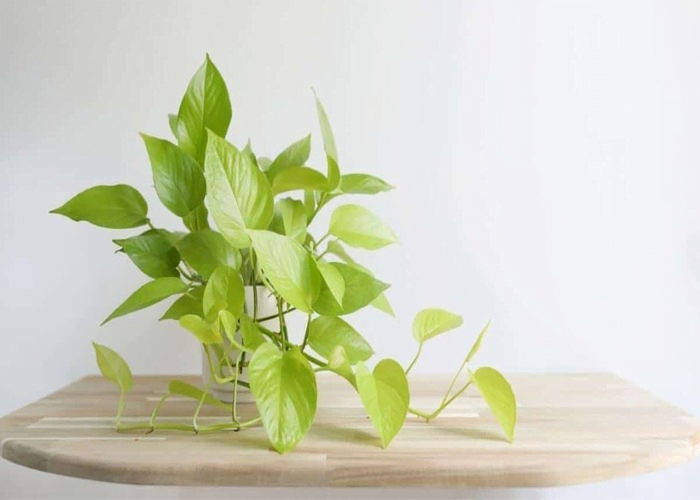
There are low-maintenance plants that induce sleep, such as golden pothos. They are particularly effective at removing carbon monoxide and formaldehyde from the air.
Furthermore, they are the best plants if you need more room on your shelves or floor. In a hanging basket or on shelves, you can display these beautiful trailing plants.
Indirect light is best for pothos. Water the pothos only when it feels dry.
13. Gardenia
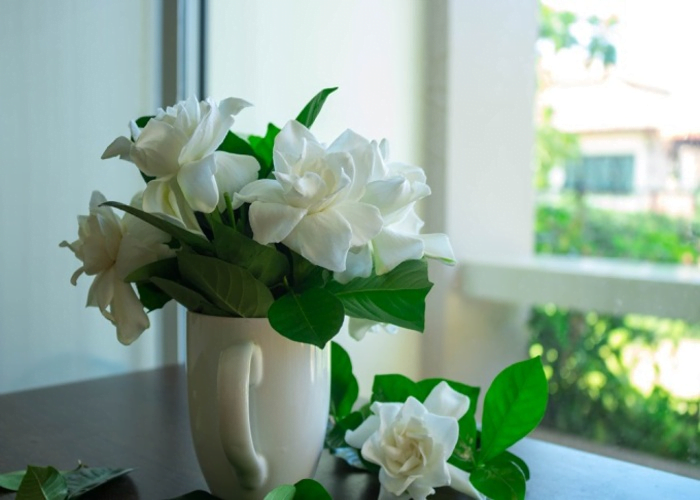
A gardenia is best if you wake up in the middle of the night. Gardenia flowers are known to make you sleepy instantly. Additionally, it is relaxing to inhale the smell of gardenias.
They are also known as effective natural alternatives to sleeping pills such as valium. So, if insomnia strikes, instead of turning to a sleeping pill, try buying some gardenia. As a natural remedy, they are the best plants that induce sleep.
It’s best to grow gardenias in a sunny window so they can get 6-8 hours of direct sunlight a day. Moisture and good drainage are key for Gardenias.
14. Jasmine
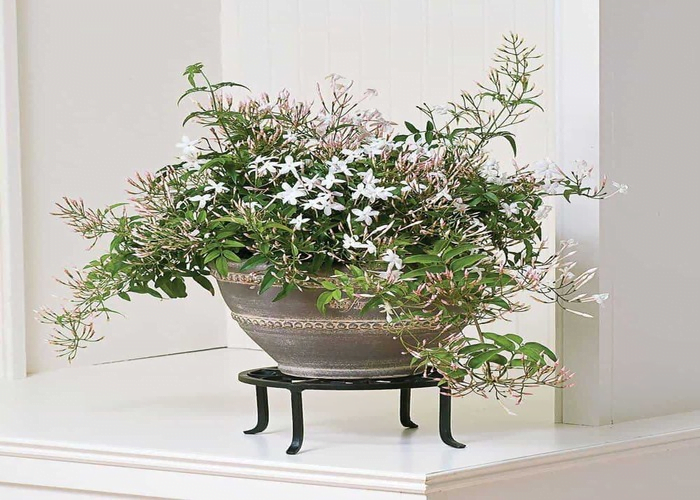
Jasmine is popular in perfumes and candles due to its wonderful fragrance. Your room will be filled with an amazing aroma that will refresh you and help you get a good night’s sleep.
Moreover, the jasmine scent reduces anxiety and promotes sleep instantly. During the day, jasmine plants improve your mental performance.
Bright sunlight is ideal for growing jasmine. For indoors, plant it near a window so it gets plenty of light. It’s best to water jasmine weekly, but if the soil dries out before then, water early.
15. Gerbera Daisy
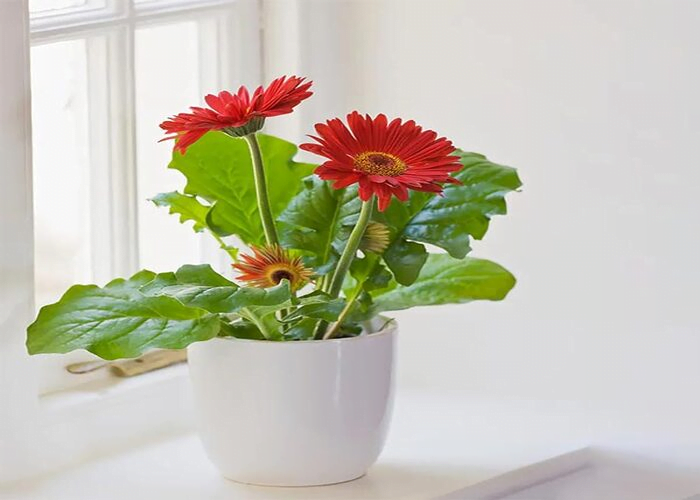
For a pop of color in your room, these dainty blooms are an excellent choice.
The Gerbera Daisy has the ability to increase the oxygen level in your bedroom at night, making it the best plants for sleep.
Additionally, they produce fresh, clean air throughout the night thanks to their air purification capabilities. The best people for these daisies are those with green thumbs and the time to care for them.
Gerbera daisies thrive where there is bright, indirect sunlight and good air circulation. It is only necessary to water the soil once it has dried to the top.
FAQs
Q1. What flower causes sleepiness?
Ans. Gardenia flowering plants make you feel relaxed and induce sleep.
Q2. What are the best plants for sleep?
Ans. Lavender, Snake plant, Peace lily, and Aloe vera are among the best plants that induce sleep.
Q3. Is there a plant that makes you fall asleep instantly?
Ans. The chamomile plant induces sleep and makes you fall asleep instantly.
Q4. Which plant is good for the bedroom at night?
Ans. Lavender, snake plant, and Aloe vera are the best plants for bedrooms. These plants refresh your bedroom by purifying the air and making you fall asleep.
Conclusion
The importance of good quality sleep is well known to all of us. Your mental health, physical health, and productivity can be negatively affected by poor sleep.
The problem of poor sleep is something no one wants; however, certain factors such as poor air quality in your bedroom, anxious thoughts at night, or insomnia can keep you awake.
To overcome these problems, you should choose plants that induce sleep. At night, they provide oxygen that makes it easier for you to breathe.
You can also fall asleep instantly with the smell of some of the amazing aromatic plants, like gardenia, jasmine, and lavender.
Additionally, chamomile is another edible indoor plant that can help you sleep. It is common for people to drink chamomile tea at night to induce sleep. Also, there are plants that are low maintenance and induce sleep, such as aloe vera, spider plants, golden pothos and snake plants.
So, now is the time to bid farewell to your sleepless night and welcome the best plants for sleep to your bedroom.
If you have any insights, please share them in the comment section below. In addition, share this article with your loved ones to help them get a better night’s sleep.
Related Articles
- 15 Best Plants for Front Door Entrance India | Auspicious plants for front door
- 10+ Money plant Benefits That Will Make you Keep It In Your House
- Are Spider Plants Toxic to Cats?- 4 Ways To Prevent Your Cats From Eating Spider Plants.
- Best Plants for the House – 8 Top Apartment Plants That You Can’t Miss
- How to Braid Your Snake Plant: Tips and Care Guide
- 20+ Rare and Unusual Peace Lily Varieties You’ll Love

